Posts feature partner companies & may be sponsored. Post contains affiliate links & I will be compensated if you make a purchase after clicking on links. As an Amazon Associate I earn from qualifying purchases.
Last Updated on February 8, 2023 by Diane Hoffmaster
For most people, money is in limited supply and the demands on finances are fairly high. Gas must be purchased regularly if we want to continue driving to work and kids need to eat. And they generally eat a LOT. Unless you sit down to create a financial wellness checklist, you won't truly be financially 'healthy'.
One way to get a great look at your household budget is to use a bullet journal for finances. It's a great way to pay off student loans, tackle credit card debt, boost retirement savings, and create an emergency savings account. However, no matter what method you choose, sit down this month and start saving money with a long-term financial plan.
Table of Contents
Financial Wellness Checklist
Long-term expenses like a mortgage, a child's college education, and retirement require a lot of planning ahead of time. Financial literacy isn't something we are born with. Do your research with trusted sources and hire professionals to help with estate planning if necessary.
Here are a few things I have on my own family's financial wellness checklist. I will include a few resources in the post if you want more information about any of these financial tasks.
Plan for the future
While it's important to live in the here and now, planning for your financial future is incredibly important. Is your health insurance sufficient for catastrophic illness or injury? How will you pay for retirement? Will your loved ones be financially secure if something happens to you? Set goals and figure out how to reach them.
Set up a retirement account and research term life insurance. Do some research to get term life insurance quotes from several sources. Consider hiring a financial planner to help set up a retirement account. These two financial tasks will help ensure that your future will be more secure.
Many people don't know what term life insurance is, and those that do often believe it isn't necessary for them. Term life insurance provides financial security in the event of sudden death. It gives you a lump sum payment to help cover funeral expenses as well as provide some extra money for loved ones. There are several reasons why you should have term life insurance, including:
- To protect your family from financial hardships if you die suddenly
- To replace the income that would be lost if you were no longer able to work
- For peace of mind knowing there will be money available when needed
Make sure to file your paperwork in an area where your loved ones can find it in the event of your death. It does not good to have these things if no one can find the info when they need it.
Make a list of your accounts and passwords
You have no idea how many people just LOSE money! That first job you had that required you to put money in a 401K even though you didn't want to? You worked there for a year...not much money in it, right? Well, after 20 years, you bet that account has some money in it now!
Create a list of all your accounts and their passwords. Print out a hard copy and keep it in a secure location. A fireproof safe is a great location.
Check your credit report and score
Do you know what your credit score is? If you plan on buying a car, or a house, or taking out a line of credit for home improvement, you should know what it is.
There are a lot of factors that affect your credit score, including things like how many lines of credit you have open, how much debt you currently owe, and whether or not you have ever been late on your payments. Put 'improving your credit score' at the top of your financial wellness checklist.
Write a will
My husband and I wrote a will 15 years ago when we first had kids. Of course, a LOT has changed since then! I just purchased Quicken Willmaker Plus a few weeks ago and we will be sitting down after the holidays to put together a new one.
You will need to have all your account numbers available for that process, so start with number one on my financial wellness checklist FIRST before tackling your will.
Set up a budget
This is one of my least favorite financial tasks, but it doesn't have to be hugely detailed if you don't want it to be. How much will you spend on food per month? Will you be making any charitable donations? How much will you put in your retirement account? Make sure you factor in things like back-to-school shopping or holiday gifts.
I HIGHLY recommend you max out your employer's 401K matching donations or you are throwing away money. Charitable donations that are made PRE-TAX will help lower your tax bracket.
And pay yourself FIRST. Put as little as $10 a week into a retirement account. After 20 years, that money will really add up and you will most likely not even miss it from your weekly budget.
More Financial Tips to Read
- How to Plan for Retirement When Money is Tight
- What to Look for in a Financial Advisor Before Your Hire Them
- Turn Summer Chores for Kids into Smart Money Management
Start an emergency fund
There are often times in our lives when our financial security is at risk. The loss of a job, a major illness, an unexpected pregnancy, etc. Setting up a financial wellness checklist is a great start but you need an emergency fund to fall back on.
Typically, experts recommend having three months' salary in reserve 'just in case'. For people who are living paycheck to paycheck, it may be hard to imagine coming up with that kind of money. However, going into debt due to a job loss is a slippery slope that leads to high-interest emergency loans and bankruptcy.
Bullet Journals For Finances
Use a bullet journal to stay on top of finances. Read my post on bullet journal tips for beginners before you start. This type of system keeps all of your finances in one journal. Track everything from bill paying and income, to looking at spending habits and learning how to save money.
Here are a few tips for using a bullet journal for financial wellness.
Include Your General Finance Information
You can start the financial part of your bullet journal by including some general information about your finances. Have this page be dedicated to the current state of your financial situation, what is in your bank and savings accounts, and a brief summary of where you want to go from here.
List your major debts and expenses, how much you earn and how often, and how much you are trying to save.
Track Every Cent You Spend
Your finance section should also have an area where you can track your spending on a daily basis. This is necessary so you know where your money goes and where you can cut back.
Perhaps you find that you spend a good portion of your extra money on clothes, or going out for happy hour is costing a little too much. Just tracking what you spend can make a drastic difference.
Create a Savings Plan
Part of tracking your finances in the bullet journal can be to start a savings plan. This might include saving for specific things, such as your child’s college fund, buying a new car, or starting a business. You can also have open-ended savings plans, such as wanting to save money for a 10-year plan you have in mind or just saving for your retirement.
Separate Business and Personal Finances
If you run a business, make sure you are keeping your business and personal finances separate. This helps you to determine what money is spent on your personal situation and business responsibilities but also helps to reduce combining work and personal stress.
Every Penny Counts
Plan ahead NOW for the emergency that may happen tomorrow. Save a small amount every week. Ditch the cable TV and start shopping at the thrift store for your kid's clothes. Make those changes NOW while you still have some flexibility in your budget. Want to improve your financial health? Here are a few places you may want to visit:
- Fidelity.com has a ton of great resources on financial planning
- US News has some great information about how to find a financial advisor if you need additional financial help
- Kiplinger has a great household budget worksheet
I hope this financial wellness checklist has been helpful. Tackle these financial tasks now and in a few years, you will be well on your way to financial security! What financial tasks would YOU add to this list?
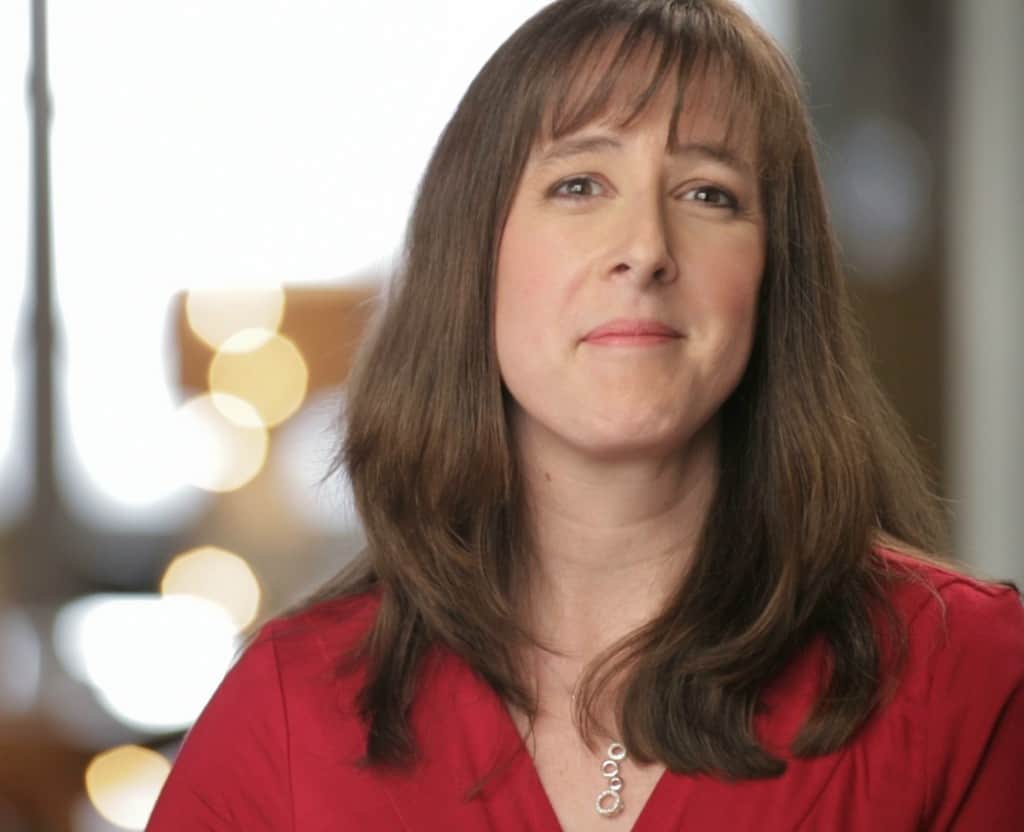
Diane is a professional blogger and nationally certified pharmacy technician at Good Pill Pharmacy. She has two college aged kids, one husband and more pets than she will admit to. She earned her BS in Microbiology at the University of New Hampshire but left her career in science to become a stay at home mom. Years of playing with LEGO and coloring with crayons had her craving a more grown up purpose to her life and she began blogging and freelance writing full time. You can learn more about her HERE.


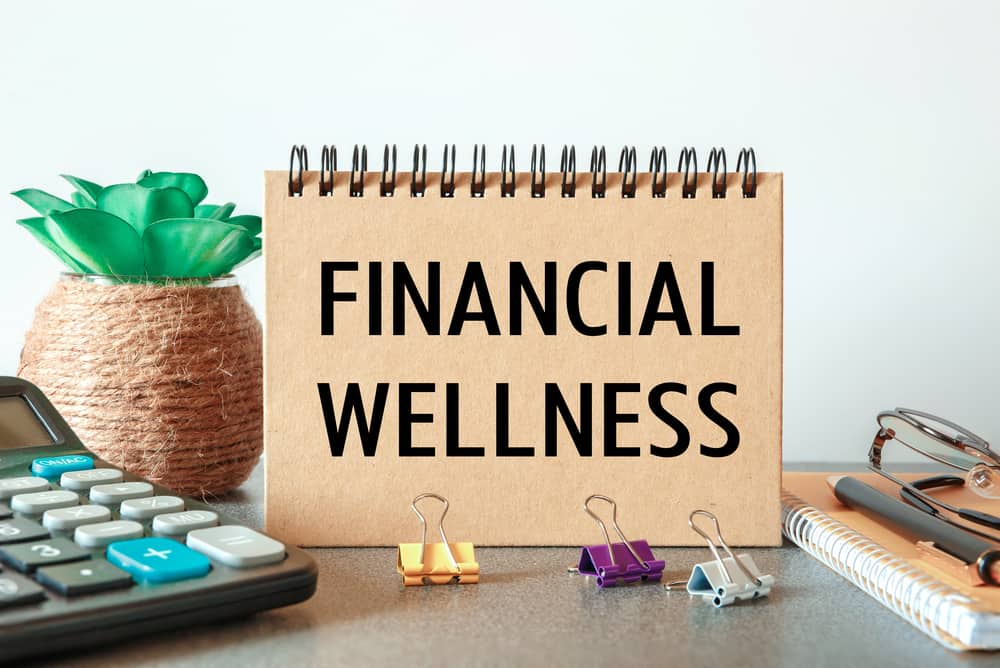
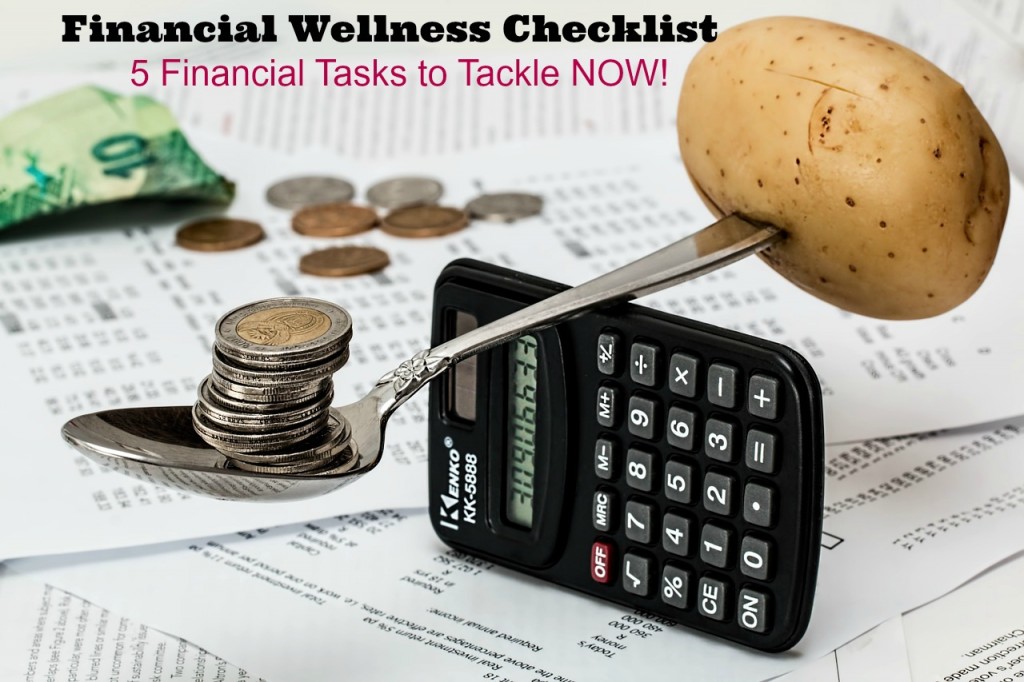
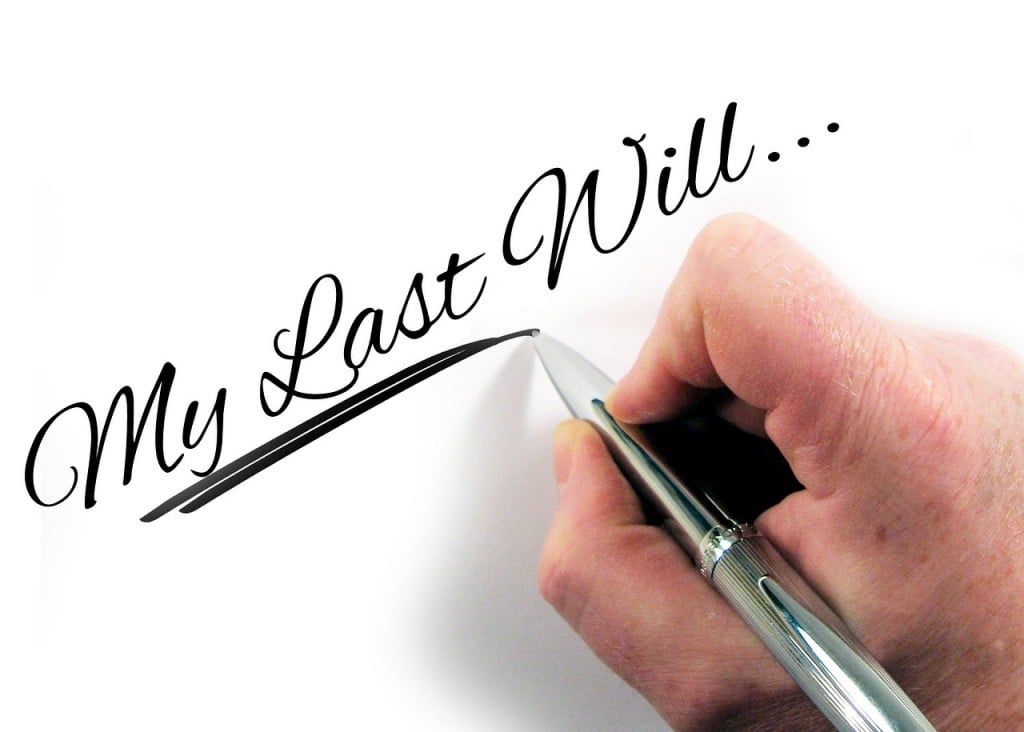



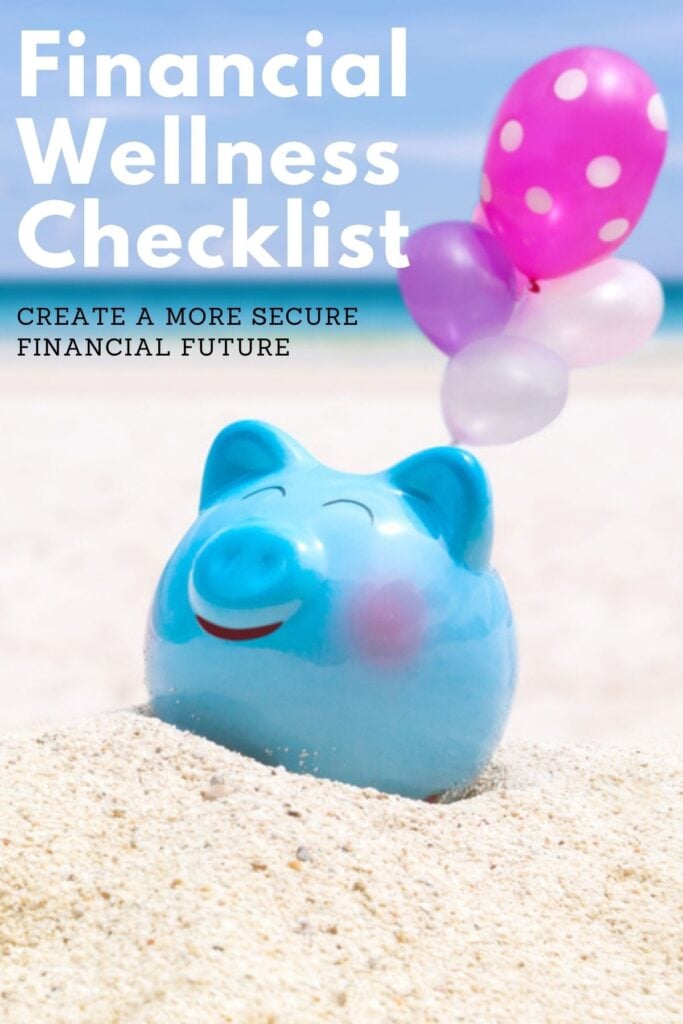

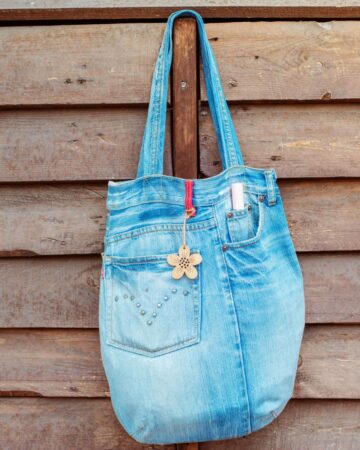
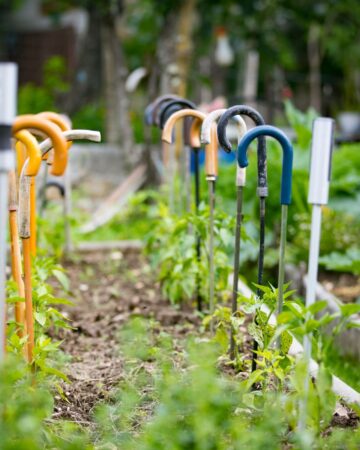

Leave a Reply